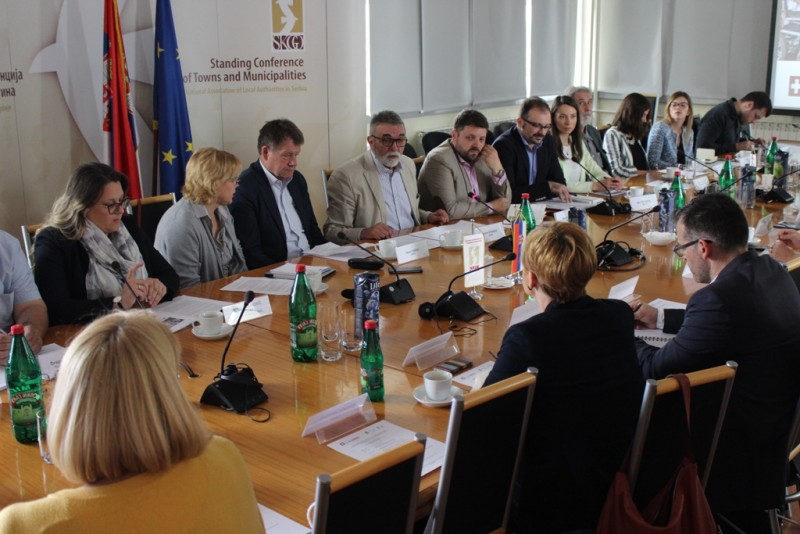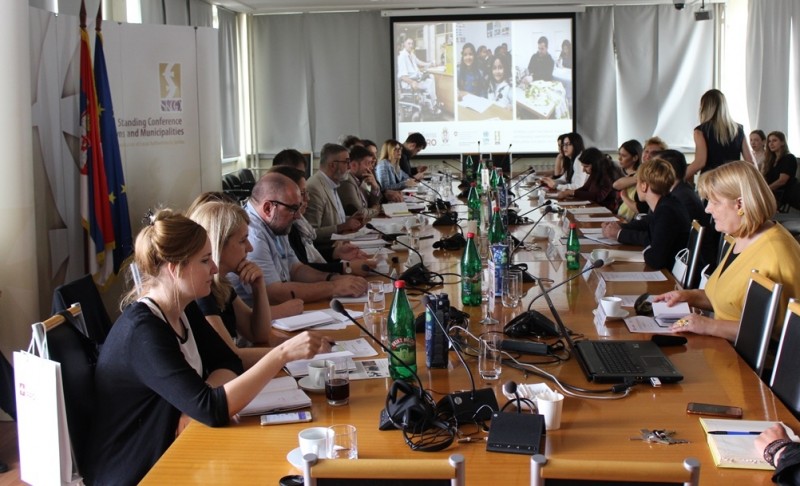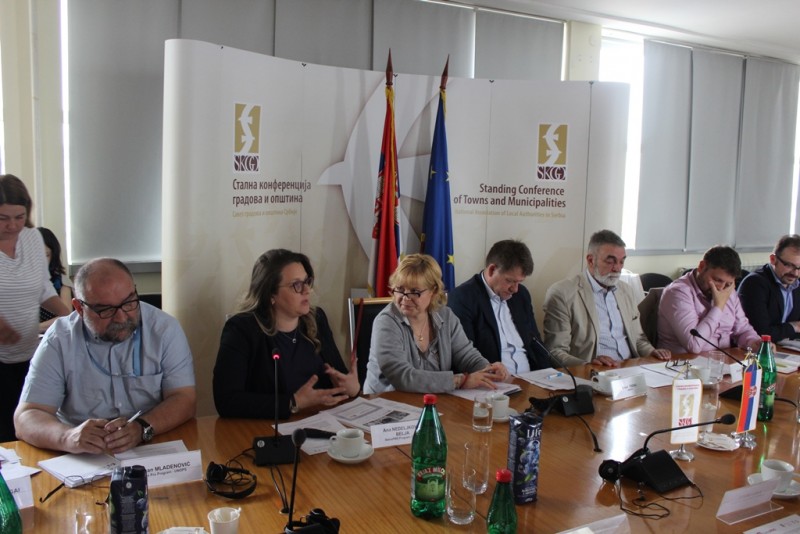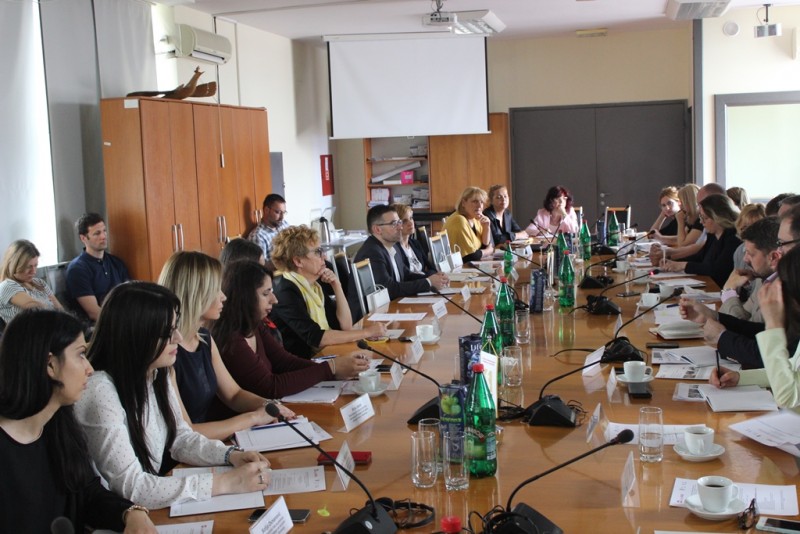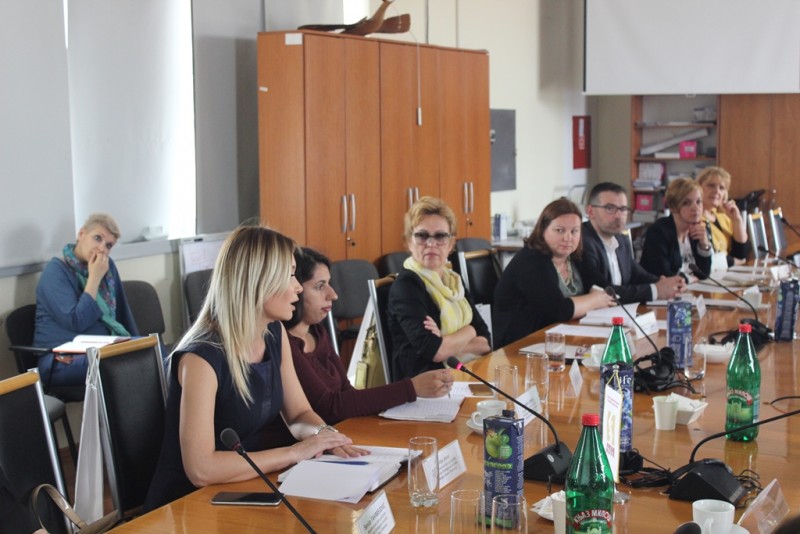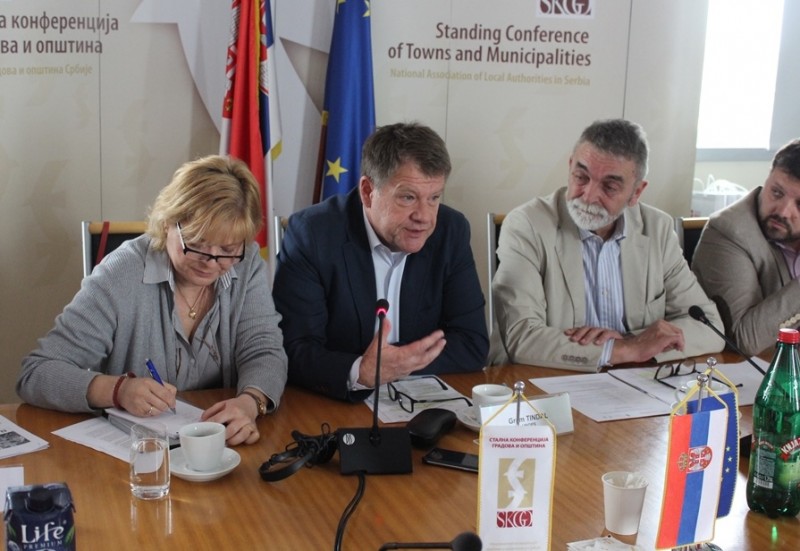News / Actualities
Swiss PRO Programme Presented to Counterpart National Institutions
-
Belgrade, 10 May 2018
Đorđe Staničić, SCTM Secretary-General, said that the Programme was addressing issues of multifold importance for the operation and improved functioning of the local self-government (LSG), but also for citizens as end users of services provided by the administration.
“As project partner, SCTM will provide its members with the necessary support to improve good governance at the local level, which is also in the name of the part of the Programme implemented by the SCTM,” Mr Staničić said.
“Issues such as accountable governance, citizen participation in policy making, equal access to services, efficient and balanced, predictable procedure, are only some of the topics we will be addressing in the future, which will contribute to transforming the administration into a service for the citizens, to enhancing the capacities and improving the procedures to better fit local community needs,” SCTM General-Secretary concluded.
Graeme Tyndall, Head of UNOPS Serbia, emphasized the importance of cooperation with the colleagues in national institutions during project implementation.
“We’ve come a long way in introducing good governance principles in Serbia during the past seven years,” Tyndall pointed out, and added that this was, above all, a behavioural change.
He also stressed that together with the European Union, UNOPS has been implementing the EU PRO Programme, worth a total of 25 million Euros, which will work on linking together good governance with infrastructural projects, and thus contribute to creating a more business-friendly environment by enhancing efficiency and effectiveness in the provision of services to business entities at the local level and with social inclusion in multi-ethnic communities.
Ana Nedeljković Belja, National Programme Manager, pointed out that the aims of the Programme were to improve governance by enhancing local capacities to implement good governance principles in practice and improve the lives of vulnerable groups through the implementation of local social protection policies and measures.
In her words, local self-governments, public companies and vulnerable groups are the targets, while the direct outcome of the Programme will be to enhance good governance at the local level, increase social inclusion of vulnerable groups and improve gender equality.
Nikola Tarbuk, SCTM Deputy Secretary-General, presented the main planned activities to be implemented by the SCTM within this Programme.
In his words, SCTM will work on assessing the capacities of at least 60 LSGs to implement good governance by using the Good Governance Index, developed by the SCTM in cooperation with GIZ. Advisory and direct support will be provided through the knowledge base and information centre on good governance, and a handbook will be developed on applying good governance at the local level. Through electronic and conventional trainings, efforts will be made to enhance the capacities of towns and municipalities, and in cooperation with the Ministry of Public Administration and Local Self-Government, a competition will be organized for local self-governments aimed to select best practices.
Mr Tarbuk underlined the development and implementation of specific support packages for LSGs, aiming to improve efficiency and effectiveness, anti-corruption and improve citizen participation.
The Programme covers 99 towns and municipalities in Serbia, funded by the Swiss Government with 5.8 million EUR, implemented by UNOPS, in partnership with SCTM. The official programme kick-off was on 1 January 2018, and it will end on 31 December 2021.





